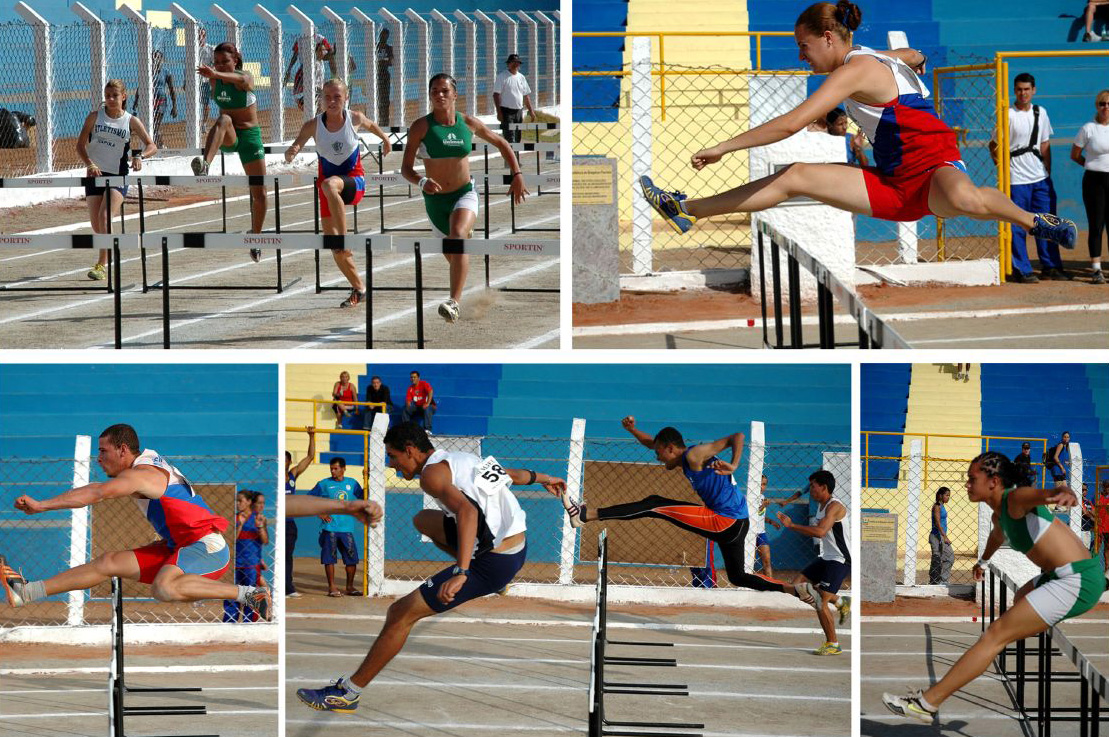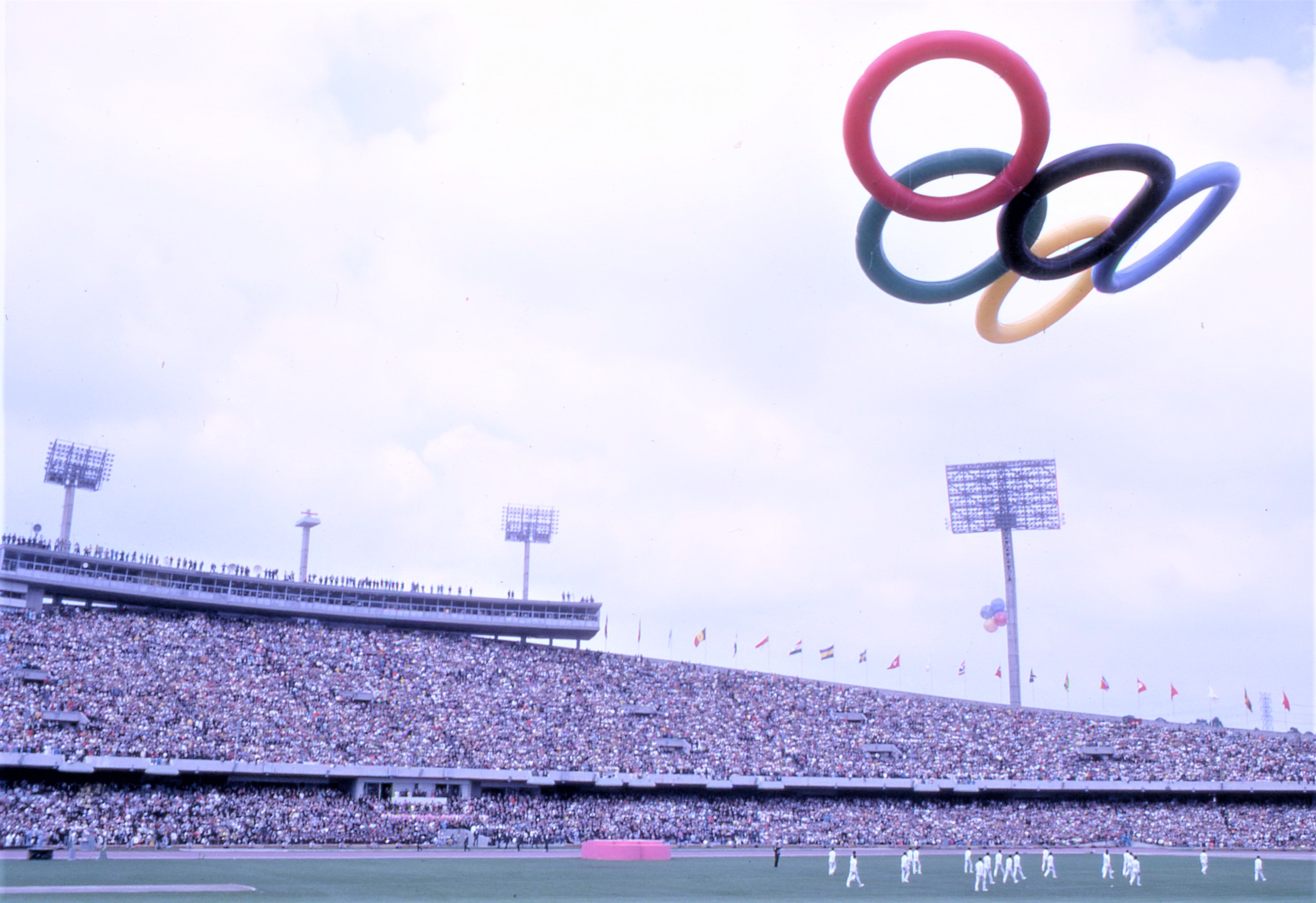|
Oleg Stepanenko
Oleg Stepanenko (born 20 October 1939) is a Ukrainian hurdler. He competed in the men's 110 metres hurdles at the 1968 Summer Olympics The 1968 Summer Olympics (), officially known as the Games of the XIX Olympiad () and officially branded as Mexico 1968 (), were an international multi-sport event held from 12 to 27 October 1968, in Mexico City, Mexico. These were the first Ol ... representing the Soviet Union. References 1939 births Living people Athletes (track and field) at the 1968 Summer Olympics Soviet male hurdlers Ukrainian male hurdlers Olympic athletes for the Soviet Union Place of birth missing (living people) Soviet Athletics Championships winners 20th-century Ukrainian sportsmen {{USSR-athletics-bio-stub ... [...More Info...] [...Related Items...] OR: [Wikipedia] [Google] [Baidu] |
Hurdling
Hurdling is the act of jumping over an obstacle at a high speed or in a sprint. In the early 19th century, hurdlers ran at and jumped over each hurdle (sometimes known as 'burgles'), landing on both feet and checking their forward motion. Today, the dominant step patterns are the 3-step for high hurdles, 7-step for low hurdles, and 15-step for intermediate hurdles. Hurdling is a highly specialized form of obstacle racing, and is part of the sport of athletics (sport), athletics. In hurdling events, barriers known as hurdles are set at precisely measured heights and distances. Each athlete must pass over the hurdles; passing under or intentionally knocking over hurdles will result in disqualification. Accidental knocking over of hurdles is not cause for disqualification, but the hurdles are weighted to make doing so disadvantageous. In 1902 Spalding equipment company sold the Foster Patent Safety Hurdle, a wood hurdle. In 1923 some of the wood hurdles weighed each. Hurdle des ... [...More Info...] [...Related Items...] OR: [Wikipedia] [Google] [Baidu] |
Athletics At The 1968 Summer Olympics – Men's 110 Metres Hurdles
The men's 110 metres hurdles competition at the 1968 Summer Olympics in Mexico City, Mexico was held at the University Olympic Stadium on October 16–17. Thirty-three athletes from 24 nations competed. The maximum number of athletes per nation had been set at 3 since the 1930 Olympic Congress. The event was won by Willie Davenport of the United States, the nation's eighth of nine consecutive victories and the 14th overall gold medal in the event for the Americans. Eddy Ottoz's bronze was Italy's first medal in the event. Background This was the 16th appearance of the event, which is one of 12 athletics events to have been held at every Summer Olympics. Three finalists from 1964 returned: fourth-place finisher Eddy Ottoz of Italy, sixth-place finisher Marcel Duriez of France, and seventh-place finisher Giovanni Cornacchia, also of Italy. The American team, including Willie Davenport (whose injury in Tokyo had ended a streak of four consecutive podium sweeps), Ervin Hall, ... [...More Info...] [...Related Items...] OR: [Wikipedia] [Google] [Baidu] |
1968 Summer Olympics
The 1968 Summer Olympics (), officially known as the Games of the XIX Olympiad () and officially branded as Mexico 1968 (), were an international multi-sport event held from 12 to 27 October 1968, in Mexico City, Mexico. These were the first Olympic Games to be staged in Latin America, the first to be staged in a Hispanophone, Spanish-speaking country, and the first to be staged in the Global South. Consequently, these games also marked the first time that there would be a gap of two Olympic Games not to be held in Europe. They were also the first Games to use an All-weather running track, all-weather (smooth) track for track and field events instead of the traditional cinder track, as well as the first example of the Olympics exclusively using electronic timekeeping equipment. The 1968 Games were the third to be held in the last quarter of the year, after the 1956 Summer Olympics, 1956 Games in Melbourne and the 1964 Summer Olympics, 1964 Games in Tokyo. The Mexican Movement of ... [...More Info...] [...Related Items...] OR: [Wikipedia] [Google] [Baidu] |
1939 Births
This year also marks the start of the World War II, Second World War, the largest and deadliest conflict in human history. Events Events related to World War II have a "WWII" prefix. January * January 1 ** Coming into effect in Nazi Germany of: *** The Protection of Young Persons Act (Germany), Protection of Young Persons Act, passed on April 30, 1938, the Working Hours Regulations. *** The small businesses obligation to maintain adequate accounting. *** The Jews name change decree. ** With his traditional call to the New Year in Nazi Germany, Führer and Reich Chancellor Adolf Hitler addresses the members of the National Socialist German Workers' Party (NSDAP). ** The Hewlett-Packard technology and scientific instruments manufacturing company is founded by Bill Hewlett and David Packard, in a garage in Palo Alto, California, considered the birthplace of Silicon Valley. ** Philipp Etter takes over as President of the Swiss Confederation. ** The Third Soviet Five Year P ... [...More Info...] [...Related Items...] OR: [Wikipedia] [Google] [Baidu] |
Living People
Purpose: Because living persons may suffer personal harm from inappropriate information, we should watch their articles carefully. By adding an article to this category, it marks them with a notice about sources whenever someone tries to edit them, to remind them of WP:BLP (biographies of living persons) policy that these articles must maintain a neutral point of view, maintain factual accuracy, and be properly sourced. Recent changes to these articles are listed on Special:RecentChangesLinked/Living people. Organization: This category should not be sub-categorized. Entries are generally sorted by family name In many societies, a surname, family name, or last name is the mostly hereditary portion of one's personal name that indicates one's family. It is typically combined with a given name to form the full name of a person, although several give .... Maintenance: Individuals of advanced age (over 90), for whom there has been no new documentation in the last ten ... [...More Info...] [...Related Items...] OR: [Wikipedia] [Google] [Baidu] |
Athletes (track And Field) At The 1968 Summer Olympics
An athlete is most commonly a person who competes in one or more sports involving physical strength, speed, power, or endurance. Sometimes, the word "athlete" is used to refer specifically to sport of athletics competitors, i.e. including track and field and marathon runners but excluding e.g. swimmers, footballers or basketball players. However, in other contexts (mainly in the United States) it is used to refer to all athletics (physical culture) participants of any sport. For the latter definition, the word sportsperson or the gendered sportsman or sportswoman are also used. A third definition is also sometimes used, meaning anyone who is physically fit regardless of whether they compete in a sport. Athletes may be professionals or amateurs. Most professional athletes have particularly well-developed physiques obtained by extensive physical training and strict exercise, accompanied by a strict dietary regimen. Definitions The word "athlete" is a romanization of the , ''a ... [...More Info...] [...Related Items...] OR: [Wikipedia] [Google] [Baidu] |
Soviet Male Hurdlers
The Union of Soviet Socialist Republics. (USSR), commonly known as the Soviet Union, was a transcontinental country that spanned much of Eurasia from 1922 until it dissolved in 1991. During its existence, it was the largest country by area, extending across eleven time zones and sharing borders with twelve countries, and the third-most populous country. An overall successor to the Russian Empire, it was nominally organized as a federal union of national republics, the largest and most populous of which was the Russian SFSR. In practice, its government and economy were highly centralized. As a one-party state governed by the Communist Party of the Soviet Union (CPSU), it was a flagship communist state. Its capital and largest city was Moscow. The Soviet Union's roots lay in the October Revolution of 1917. The new government, led by Vladimir Lenin, established the Russian SFSR, the world's first constitutionally communist state. The revolution was not accepted by all wi ... [...More Info...] [...Related Items...] OR: [Wikipedia] [Google] [Baidu] |
Ukrainian Male Hurdlers
* Ukrainians (other)
* Ukraine (other)
* Ukraina (other)
* Ukrainia (other)
*
{{disambiguation
Language and nationality disambiguation pages ...
Ukrainian may refer or relate to: * Ukraine, a country in Eastern Europe * Ukrainians, an East Slavic ethnic group native to Ukraine * Demographics of Ukraine * Ukrainian culture, composed of the material and spiritual values of the Ukrainian people * Ukrainian language, an East Slavic language of the Indo-European language family, spoken primarily in Ukraine * Ukrainian cuisine, the collection of the various cooking traditions of the people of Ukraine See also * Languages of Ukraine * Name of Ukraine * Religion in Ukraine Christianity is the predominant religion in Ukraine, with 85% of the population identifying as Christian according to a 2022 survey conducted by the Kyiv International Institute of Sociology (KIIS). Seventy-two percent of the population avowed ... [...More Info...] [...Related Items...] OR: [Wikipedia] [Google] [Baidu] |
Olympic Athletes For The Soviet Union
Olympic or Olympics may refer to Sports Competitions * Olympic Games, international multi-sport event held since 1896 ** Summer Olympic Games ** Winter Olympic Games * Ancient Olympic Games, ancient multi-sport event held in Olympia, Greece between 776 BC and 393 AD * Olympic (greyhounds), a competition held annually at Brighton & Hove Greyhound Stadium Clubs and teams * Adelaide Olympic FC, a soccer club from Adelaide, South Australia * Fribourg Olympic, a professional basketball club based in Fribourg, Switzerland * Sydney Olympic FC, an Australian soccer club * Olympic Club (Barbacena), a Brazilian football club based in Barbacena, Minas Gerais state * Olympic Mvolyé, a Cameroonian football club based in Mvolyé * Olympic Club (Egypt), a football and sports club based in Alexandria * Blackburn Olympic F.C., an English football club based in Blackburn, Lancashire * Rushall Olympic F.C., an English football club based in Rushall * FC Olympic Tallinn, an Eston ... [...More Info...] [...Related Items...] OR: [Wikipedia] [Google] [Baidu] |
Place Of Birth Missing (living People)
Place may refer to: Geography * Place (United States Census Bureau), defined as any concentration of population ** Census-designated place A census-designated place (CDP) is a Place (United States Census Bureau), concentration of population defined by the United States Census Bureau for statistical purposes only. CDPs have been used in each decennial census since 1980 as the counte ..., a populated area lacking its own municipal government * "Place", a type of street or road name ** Often implies a dead end (street) or cul-de-sac * Place, based on the Cornish word "plas" meaning mansion * Place, a populated place, an area of human settlement ** Incorporated place (see municipal corporation), a populated area with its own municipal government * Location (geography), an area with definite or indefinite boundaries or a portion of space which has a name in an area Placenames * Placé, a commune in Pays de la Loire, Paris, France * Plače, a small settlement in Slov ... [...More Info...] [...Related Items...] OR: [Wikipedia] [Google] [Baidu] |
Soviet Athletics Championships Winners
The Union of Soviet Socialist Republics. (USSR), commonly known as the Soviet Union, was a transcontinental country that spanned much of Eurasia from 1922 until it dissolved in 1991. During its existence, it was the largest country by area, extending across eleven time zones and sharing borders with twelve countries, and the third-most populous country. An overall successor to the Russian Empire, it was nominally organized as a federal union of national republics, the largest and most populous of which was the Russian SFSR. In practice, its government and economy were highly centralized. As a one-party state governed by the Communist Party of the Soviet Union (CPSU), it was a flagship communist state. Its capital and largest city was Moscow. The Soviet Union's roots lay in the October Revolution of 1917. The new government, led by Vladimir Lenin, established the Russian SFSR, the world's first constitutionally communist state. The revolution was not accepted by all wi ... [...More Info...] [...Related Items...] OR: [Wikipedia] [Google] [Baidu] |




